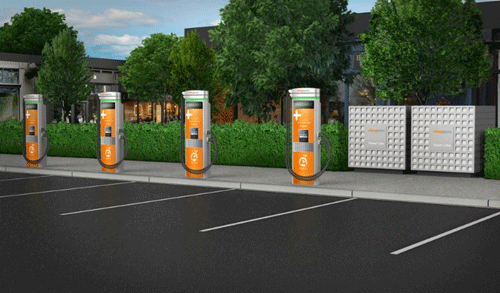11/19/2025 Paul Jensen Presents CCL's En-ROADS model to NDSU Students
Dr. Sulaymon Eshkabilow invites GWE to present En-roads simulation software

Dr. Sulaymon Eshkabilov invited GWE's Paul Jensen to talk about climate change and the En-ROADS simulation software available for public use. The students were able to simulate environmental changes themselves during the presentation, and we discussed the agricultural output during the 21st century based on increases in average temperatures as a result of the use of fossil fuels.
Dr. Eshkabilov recently had a grant approved on Societal Implications of Clean Energy Tractors for Farming and the En-ROADS simulation software supported his project.
According to the US Environmental Protection Agency (EPA), over 65% of greenhouse gases (GHG), of which 25% corresponds to agriculture, come from fossil fuel use. Global CO2 emissions from fossil fuels have more than doubled since 1980, especially in the transportation sector. The EIA data 2016 shows that approximately 92% of transportation fuels, including agricultural machinery, came from petroleum sources. The US EPA proposed stricter rules and regulations for tractor-trailer rigs and off-road vehicles to cut smog-root-soot-forming NOx by up to 90% per vehicle by 2031. These EPA regulations are in line with the executive order from President Joe Biden's administration to eliminate up to 2100 premature deaths and 18,000 child asthma cases and reduce hospital admissions and emergency room visits by 6,700 with the reduced air pollution.
The issue of development, implementation, and acceptance of low or zero-emission tractors is a multi-faceted issue that cannot be addressed and solved by researchers and industry engineers only. This issue has technological, R&D, educational, and socio-economic aspects. There are a few key players in making new tractors developed, produced, and accepted by end-users who are farmers.
The project's overall goal is to develop a cohesive methodology to assess the societal implications of clean energy tractors by considering the cultural, economic, educational, and environmental aspects of using clean energy tractors in farming. The specific objectives of the proposed research are:
Objective 1: Develop a cohesive method of collecting objective and subjective content feedback from farmers, consumers, and industry specialists on clean energy-powered tractors and assess the overall societal and cultural implications of such tractors in short and long terms using participatory impact charts.
Objective 2: Develop an online and mobile tractor simulation application visualizing estimated tractor performances and fuel consumptions (costs) and emissions with different energy sources: renewal diesel, biodiesel, hybrid electric, and fuel cell compared to standard diesel.
Objective 3: Implement and validate the developed methods to study the perceptions of farmers and consumers on clean energy-powered tractors in the example of North Dakota.
We are looking forward to receiving updates as the study is being worked on.





